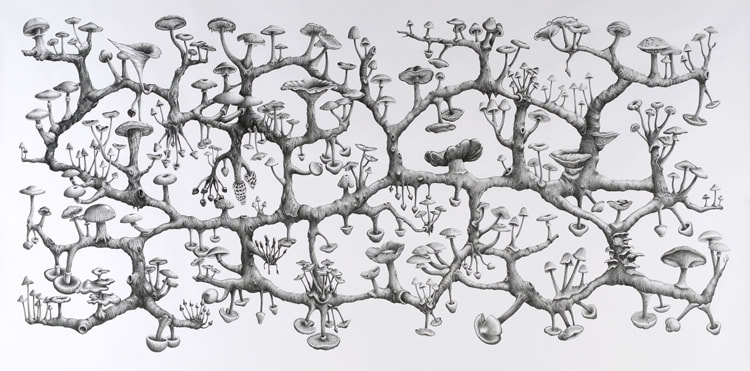 Image credit: Richard Giblett Have you ever heard this strange-sounding term - rhizome? If you have not studied postmodernist philosophy or botany, chances are you did not. The term "rhizome" comes from the Ancient Greek word that meant "mass of roots". This concept is used in botany to describe a part of a plant that has characteristics of both a root and a stem. Basically, it's a root-like stem that grows underground but can generate multiple new stems above the surface. Unlike a regular root that branches out mostly (but not always) downwards, parts of a rhizome can grow in multiple directions, including horizontally and upwards. Plants that have rhizomes include ginger, turmeric, bamboo and lotus. Postmodernist scholars Gilles Deleuze and Félix Guattari borrowed the word "rhizome" in order to use it as a philosophical term. It suited well the new ways to create theories and describe knowledge that these thinkers were proposing. Deleuze and Guattari put it this way: "rhizome has no beginning or end; it is always in the middle, between things, interbeing". They also wrote that "any point of a rhizome can be connected to anything other, and must be". Deleuze called rhizome an "image of thought", contrasting it to a tree-like neat kind of thinking that has a clear hierarchical structure. Interestingly, the world wide web has been described as a rhizome. Indeed, we can imagine hypertexts as a multitude of interconnected nodes without a clear hierarchy, very unlike a regular tree with a stem that all branches and roots can be traced back to. I believe that the term "rhizome" should be seen as a metaphor for nonlinear and nonhierarchical thinking. Essentially, it's a great metaphor for how human thinking in general works. Deleuze and Guattari were creating a new theory of knowledge, but has knowledge ever been different? The genius of these philosophers, to me, lies in the fact that they pointed out something important about the way people think and (try to) understand the world. My experimental book Me,, Looking for Meaning is going to have a rhizomatic structure in order to reflect how these mental processes work.
0 Comments
Your comment will be posted after it is approved.
Leave a Reply. |
SIGN UP to receive BLOG UPDATES! Scroll down to the bottom of the page to enter your email address.
I often use this blog to share new or updated entries of my hypertext projects. If you see several versions of the same entry published over time, the latest version is the most updated one.
|
